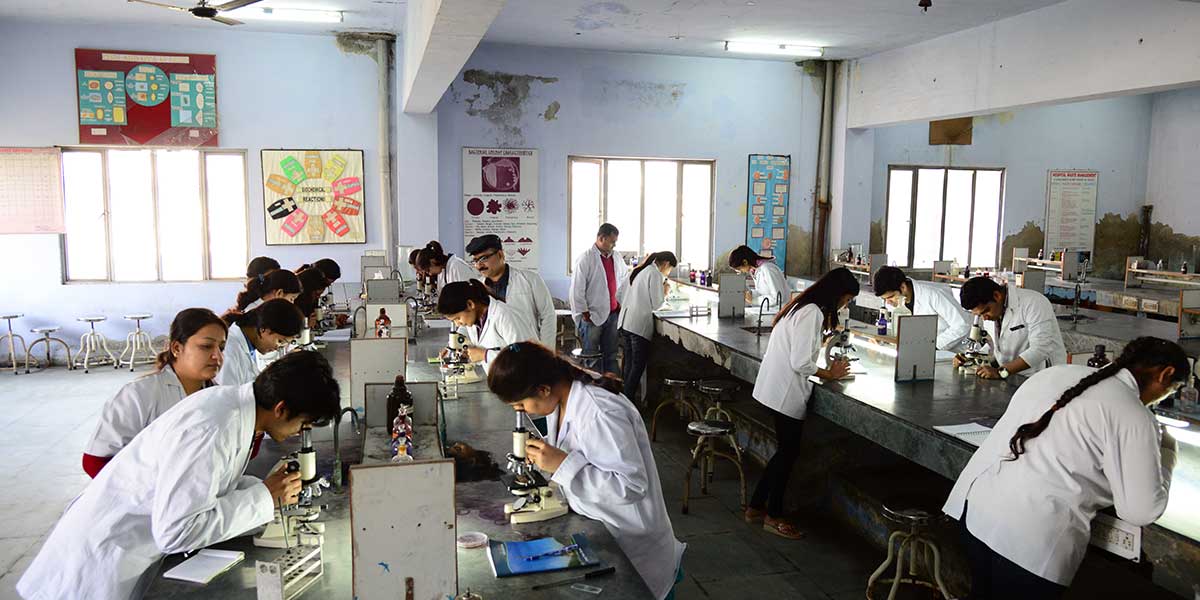
The purpose of postgraduate (PG) education in the field of healthcare, particularly in microbiology, is to produce specialists who are capable of providing high-quality healthcare services and advancing scientific research through training and research. Microbiology is a critical field that is crucial to healthcare and research, and the standardization of its teaching at the PG level is essential to achieving uniformity in undergraduate teaching across the country.
These guidelines have been prepared by subject-content specialists to provide teachers and learners with illustrative guidelines to achieve defined learning outcomes and assessments. The aim is to create a standardized framework that will help students and teachers to better understand the subject matter and its application to the real world.
The Reconciliation Board of the Academic Committee has attempted to achieve uniformity without compromising on the purpose and content of the document. However, some compromise in the purity of syntax has been made to preserve the purpose and content of the document. The "domains of learning" have been retained under the heading "competencies" to ensure that the document is comprehensive and covers all relevant areas of learning.
In conclusion, these guidelines are a valuable resource for PG students and teachers in the field of microbiology. By following these guidelines, students can gain the knowledge and skills they need to become competent and successful healthcare professionals and researchers. The standardization of teaching at the PG level will also contribute to the development of a more cohesive and effective healthcare system in the country.
Click here if you want to know about course fees.
A postgraduate student upon successfully qualifying in the MD (Microbiology) examination should be able to:
1. Demonstrate competence as a clinical microbiologist.
2. Interact effectively with the allied departments by rendering services in basic as well as advanced laboratory investigations.
3. Demonstrate the application of microbiology in a variety of clinical settings to solve diagnostic and therapeutic problems along with preventive measures.
4. Play a pivotal role in hospital infection control, including formulation of antibiotic policy and management of biomedical waste.
5. Acquire skills in conducting collaborative research in the field of Microbiology and allied sciences.
6. Conduct such clinical/experimental research as would have a significant bearing on human health and patient care.
7. Demonstrate effective communication skills required for the practice of clinical microbiology and while teaching undergraduate students.
8. Establish good clinical microbiological services in a hospital and in the community in the fields of bacteriology, virology, parasitology, immunology, mycology and serology, and mycobacteriology.
9. Plan, execute and evaluate teaching assignments in Medical Microbiology.
Post-graduate training:
The post-graduate training should include the following components for a holistic approach.
a. Laboratory and Diagnostic skills in Clinical Microbiology
b. Teaching Skills
c. Research Methodology
d. Communication and attitudinal skills
| S.No | FACULTY NAME | DESIGNATION |
| 1 | DR. ASHUTOSH RAWAT | PROFESSOR & HOD |
| 2 | DR. GEETA GUPTA | PROFESSOR |
| 3 | DR. DAKSHINA BISHT | PROFESSOR |
| 4 | DR. RITU JAIN | ASSOCIATE PROFESSOR |
| 5 | DR. ANKITA GUPTA | ASSISTANT PROFESSOR |
| 6 | DR. ANUJA GUPTA | ASSISTANT PROFESSOR |
| 7 | DR. YASHA MUKIM | ASSISTANT PROFESSOR |
There should be four theory papers:
Paper I: General Microbiology and Immunology
Paper II: Systematic Bacteriology
Paper III: Virology Parasitology and Mycology
Paper IV: Applied Microbiology and Recent Advances
Practical:
Practical should be spread over two days and include the following components:
The post-graduate training should focus on developing the following skills:
Teaching methodology:
Teaching methodology should include active learning with postgraduate experiments, lectures, seminars, symposia, group discussions, and Journal clubs. Ward rounds with clinical faculty are essential. Medical Education Units can help generate teaching resource materials.
Practical training:
Practical training for postgraduate students should involve active participation in various sub-specialties and day-to-day working of all sections. They should be trained under the guidance of teachers in all aspects of Clinical Microbiology, laboratory medicine, and infection control practices. This includes collection and transport of specimens, preparation of reagents, processing of specimens, antimicrobial susceptibility testing, bio-safety precautions, maintenance of equipment, and record keeping.
Skills & performance:
The student should be given graded responsibility to enable learning by apprenticeship.
The faculty throughout the year should assess the performance of the student in skills. Areas of improvement/remarks should be mentioned for the skill and students should be reassessed for the skills which are not acquired. To go to the next level, it should be mandatory for the student to acquire lower-level skills satisfactorily, i.e. only on satisfactory completion of assisted/performed with assistance skills should the student be permitted to perform the skill independently.
Emergency duty:
The student should be posted for managing emergency laboratory services in Microbiology. He/she should deal with all the emergency investigations in Microbiology.
Training in research methodology:
Training in research methodology should be imparted by planning of a research project by the student under the guidance of a recognized guide to be executed and submitted in the form of a thesis. The thesis is aimed at training the postgraduate student in research methods and techniques.
Communication and attitudinal skills:
The post-graduate student is expected to imbibe professional attributes of honesty, integrity, accountability, honor, humanism, and excellence and demonstrate the same in the day-to-day conduct and dealings with the teacher, peers, the nursing and paramedical staff, and most-importantly patients. To ensure that student is able to acquire these attributes, their personal conduct should be keenly observed by the teachers and student should be counseled as and when required.